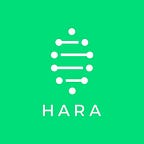Why Should We Use Blockchain? A Simplified Explanation
Consider the most impactful, great inventions of our lives. Inventions like the emergence of the printing press for mass publications, the development of engines for industrialization, internet connectivity for information access, etc. These discoveries were revolutionary because they specifically catered to filling a void or missing link and provided a solution that enabled rapid progress in our societies.
In the Medieval Period, the invention of the printing press filled the vacuum of knowledge. It made information available to the common man, which was otherwise reserved for the elites or the privileged ones. Similarly, in the early 19th century, manufacturing was boosted through the creation of engines that addressed the gap between manpower and production. This led to rapid industrialization bringing wealth and prosperity to nations. The most recent radical discovery is that of the internet. The internet addressed the critical issue of distance. It enabled anyone anywhere in the world to connect, transact, and interact in a way that we could never have imagined before.
In this digital age, indisputably, there exists a big gap between business and trust. However, we find ourselves in the middle of an exciting paradigm shift that is going to fundamentally change the way we “trust.”
Existing Condition
Trust is inherently essential to any business. It is prevalent in all ages, starting from the early cavemen all the way to the Industrial Age, and today in the Information Age. The norm is: “I have to trust you to transact with you.” But, trust is very delicate, intricate, and vulnerable to breach. Thus, we manufacture that trust to ensure transaction.
In a developing country like Indonesia, business institutions are faced with unique challenges. One such example is when a plantation company decides to acquire land from local farmer to expand its operations. The farmer’s land title deed information is recorded in a ledger consisting of the ownership details, field area, location, etc. Due to rudimentary and manual record keeping, these ledgers are simply based on trust, because they could easily be tampered with through incorrect or inconsistent information. Information could simply be added or deleted, and there is no fool-proof mechanism to verify any of the amendments. Issues with double identities are common where people claim ownership of a parcel of land and then seek compensation. The plantation company then has to either settle the issue with the claimant, or seek justice from the court, which could potentially lead to a long and costly legal process hindering growth plans.
Another question to ponder is, should we really trust the source of the food we consume? How can we really ensure that food with the little logo that says “Organic & certified” on the package is not actually contaminated with chemical and harmful pesticides. Any fraudulent company could easily fetch the logo off the internet and print it on the package.
For that reason, establishments called intermediaries exist, which are responsible for maintaining a centralized copy of the ledgers. In the case mentioned above, the government-owned Land Registry office maintains a land title registry to facilitate the brokering of the relationship between the landowner and the plantation company to ensure the existing ledgers are trusted. There are also authorized national food & safety departments to inspect and assign certificates labeling food packages as organic and safe.
Blockchain Approach
Blockchain is a unique, robust, and dynamic ledger in which every record is associated with a unique, unhackable key. When a record is created in the blockchain system, a trusted party stamps this record. When the next record is written, a new key is generated for the second record, and everything from the first record plus the key and the contents of the second record are encoded — constituting a dependency between the first and second records. Then, when a third record is created, all contents of the first and second record are included, and a key is generated for the third record, encapsulated in the third block. This technology ensures that there is a connection between the records, representing a chain. Upon verification and approval of the record in the network, it is added to a block, thus the forming a blockchain — a network of consensus.
HARA — A Decentralized Data Exchange
HARA is a blockchain enabled and enriched technology, which fundamentally facilitates a data exchange that is traceable, transparent, and secured. Vast amounts of data, ranging from farmers’ identification data, cultivation data, location specific data, ecological data, and market information and transaction data, are collected via a variety of sources. These sources include IoT and satellites, as well as third-parties like farmers, governments, scientists, academia, and farm-input manufacturers.
When a plantation company wants to conduct due diligence before purchasing a farmer’s land, they can access the HARA Data Exchange and find accurate, verified, and tamper-proof information. HARA’s staking mechanism and data rating features to qualify datasets based on historical transactions provides additional avenues to make an informed decision.
In the future, the HARA Application Suite could enable a security measure that allows buyers to scan a QR code on the food package from the HARA mobile app displaying the log of all the transactions that occurred at the farm it came from, including all the chemicals that were used. This will ensure that the buyer can pick the food that is considered safe and secure.
Blockchain technology has introduced a paradigm shift that will change the human experience. Through blockchain, HARA is pioneering solutions for agricultural issues that will empower billions with greater trust and transparency.
This article is inspired by Richie Etwaru’s TEDx talk: Blockchain Massively Simplified.
Join our community on Telegram!
Learn more about HARA
- Visit the HARA website
- Read our White Paper
- Join our Telegram Community
- Follow our Social Media
Facebook, Twitter, Instagram, Medium & LinkedIn
